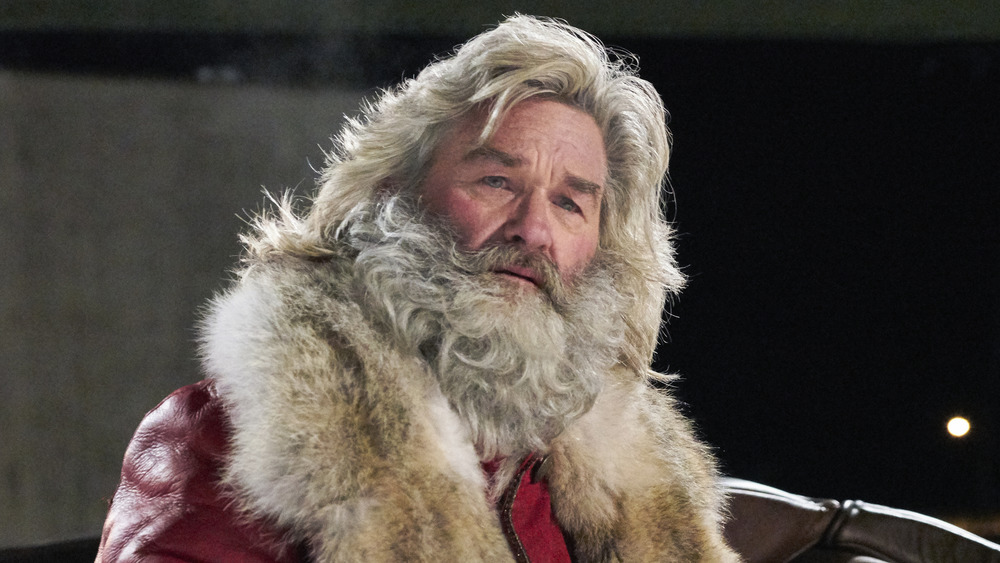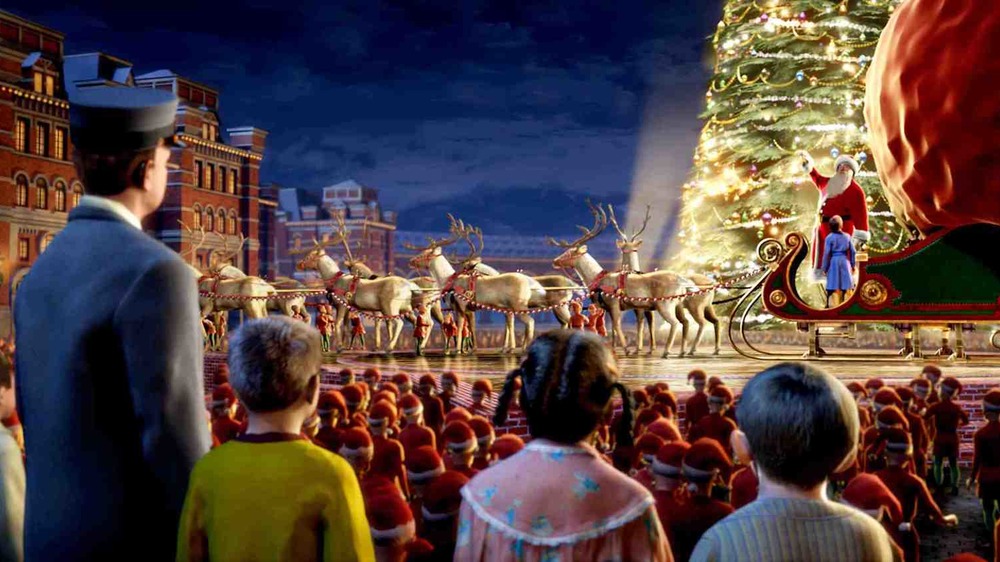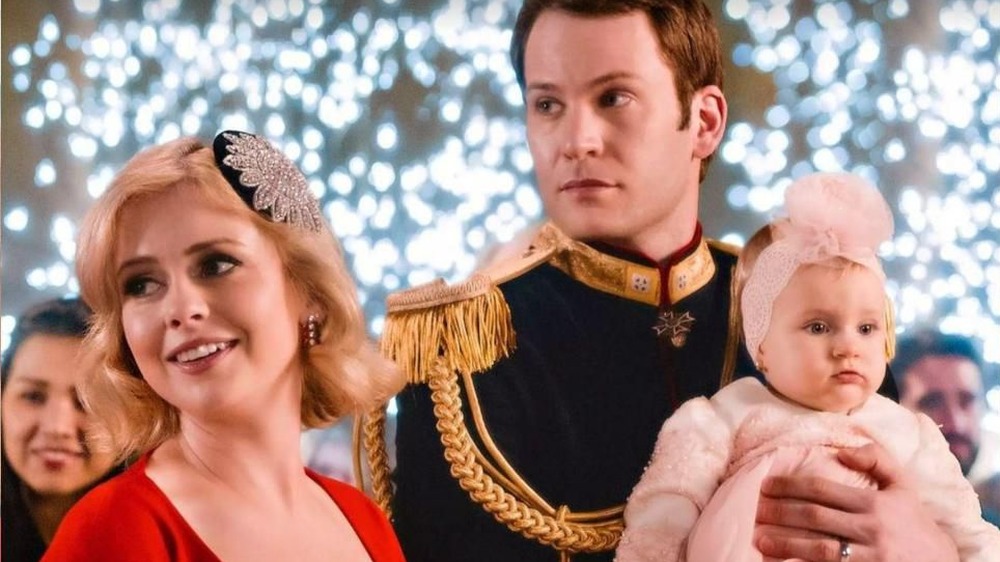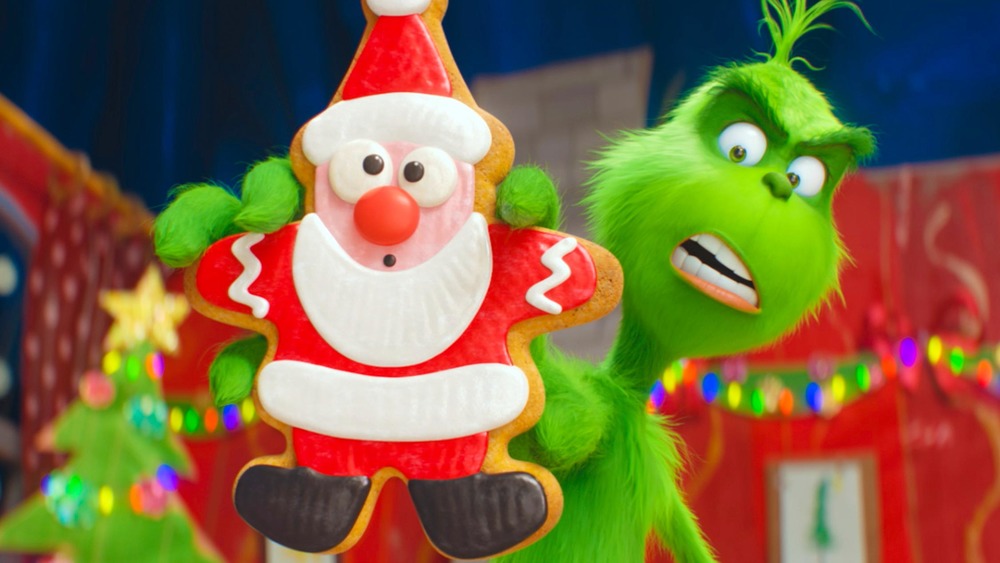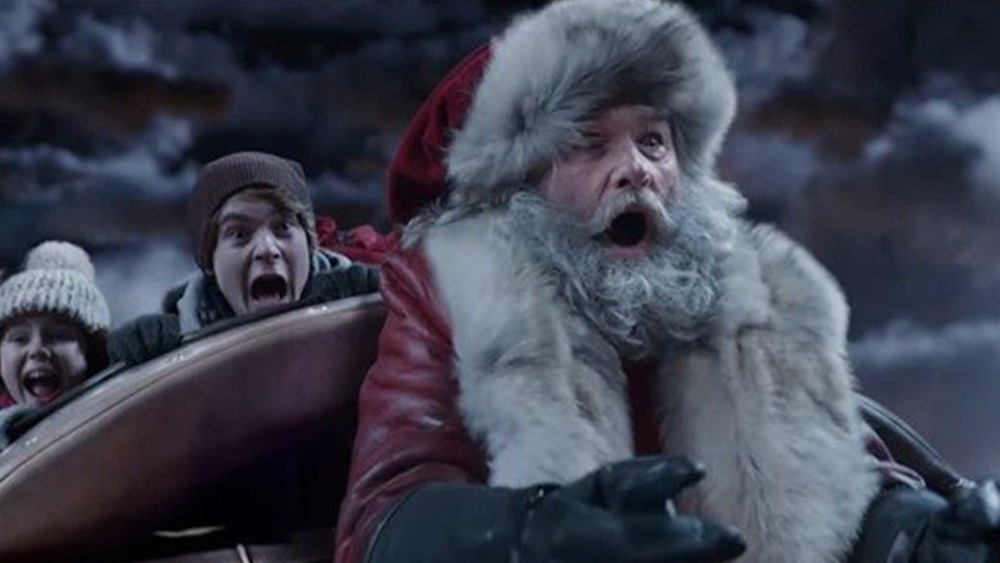Things Only Adults Notice In Christmas Movies
It's that time of year again, so get ready. During the holidays, everything is about Christmas — even the movies. It doesn't matter if you're watching an animated kids' film, a cheesy made-for-TV romance, an action flick, or a horror movie. If it's on the TV in December, there's a very good chance it comes drenched in brightly-colored holiday cheer.
But while Christmas is fun for the whole family, some of the recurring tropes in your favorite Christmas movies are bound to go over the little ones' heads. That's just fine. Little kids can enjoy the festive music, the classic characters, and Santa and all the presents that he's going to bring. Really, that's all they need.
You, though? You know better. From the allusions to classic literature to all the ways in which Santa makes absolutely no sense, you know that Christmas movies are as goofy as they come — and that's why you love them. They may be kitschy and a little predictable, but they're also heartwarming, cheery, and a lot of fun. Whether you've noticed these details before or not, you know that it just wouldn't be a Christmas movie without 'em.
The Claus conundrum
There's a problem with many Christmas movies that'll fly right over the young ones' heads, but that adults who are paying attention are bound to notice: What's the deal with Santa? In many of these movies, Santa Claus is real. His sleigh is real. His elves are real, and every Christmas Eve, he circles the globe, delivering presents to children everywhere. He's not a myth. He's an undeniable, indisputable fact.
And yet, people still don't think he exists. In movies like The Polar Express, The Year Without a Santa Claus, and Miracle on 34th Street, the entire plot hinges on people not believing Santa's story. In Elf, that disbelief even has real, tangible effects — Papa Elf, played by the legendary Bob Newhart, needs to strap a jet engine to Santa's sleigh, because the belief that powers his magic simply isn't strong enough.
But then who, exactly, do all these curmudgeons think is filling all those stockings on Christmas Eve? It's not parents. As we've established, Santa is doing all of the hard work. So, how do they explain all of those presents that appear overnight? It must be magic, right? And if you believe in magic, is Santa really that much more of a stretch? But despite all the evidence to the contrary, the adults in these stories disbelieve year after year after year — until, inevitably, some plucky youngsters convince them otherwise, often with the help of old St. Nick himself.
The most ambitious crossover event in history
Forget the MCU, the DCEU, the Godzilla and Kong-starring MonsterVerse, or any of the others. Christmas doesn't just have one shared cinematic universe. It actually has a couple. Kids have likely noticed that characters from the old stop-motion Rankin/Bass Christmas specials often pop up in each other's movies — 1975's Rudolph and Frosty's Christmas in July is basically an Avengers-style crossover connecting all of Rankin/Bass' previous features — but they probably aren't aware of the other, still-growing entry in the connected Christmas canon.
Yes, that's right: You know modern hits like A Christmas Prince, The Knight Before Christmas, the holiday-themed The Princess Switch, and all those other streaming holiday movies made by production company MPCA? They're all related. The Netflix Christmas Cinematic Universe, better known to fans as the NCCU, started in earnest in 2018's The Holiday Calendar, which features A Christmas Prince and Christmas Inheritance playing on a couple of TV sets.
That's far from the only connection, though. Aldovia, the fictional country featured in A Christmas Prince and its sequels, is mentioned in The Knight Before Christmas. Belgravia, one of the most important nations in the Princess Switch series, gets name-dropped in A Christmas Prince: The Royal Baby. The stars of A Christmas Prince even attend Margaret's coronation at the end of The Princess Switch: Switched Again. And how do you reconcile the fact that the first Princess Switch features A Christmas Prince as a fictional movie, even though they all take place in the same universe? Just chalk it up to a little bit of Christmas magic.
The most important Christmas story of all time (well, okay, second-most important)
While that old chestnut about the star of Bethlehem, the three wise men, and one very, very crowded manger is probably the definitive Christmas tale — without it, the entire holiday wouldn't exist — Charles Dickens' A Christmas Carol is a close second. While kids probably aren't familiar with the original text (although they've probably seen at least one adaptation, like the beloved A Muppet Christmas Carol), most adults should be familiar with the story. As such, they should have no problem seeing how Dickens' novella established the formula used by practically every Christmas story that followed: a Scrooge-like miser embraces greed and selfishness at the expense of innocent, hard-working Christmas revelers, only to realize their mistake and ultimately embrace the spirit of the holiday.
Sometimes, it's the main character who needs to learn the lesson. The Grinch is basically a fuzzy green Scrooge, for example — just swap out Tiny Tim for Cindy Lou Who. More often, though, it's the villain. In It's a Wonderful Life, Mr. Potter, the banker and slumlord, tries to drive George Bailey out of business. In Dolly Parton's Christmas on the Square, it's Christine Baranski's Regina Fuller, who's selling the town to a conglomerate and evicting its helpless citizens. Jingle Jangle has two such characters: Gustafson, the inventor's apprentice who betrayed his master in order to earn fame and glory, and Mr. Delacroix, the banker who threatens to close down Jeronicus Jangle's toy shop.
The important part? They all learn their lesson. The Grinch's heart grows three sizes larger. Clark Griswald's boss does, eventually, give out that Christmas bonus — even if he has to get kidnapped to see the light. In Operation Christmas Drop, Erica decides Christmas cheer is more important than budget cuts. When you really look at it, it's just A Christmas Carol again and again and again. Thankfully, it's charming every single time.
Santa, you had one job
When you think about it, Santa has a pretty cushy gig. He only works one night of the year. His elves do all the prep work, and when the big night arrives, his reindeer do most of the physical labor. His main duty is making children happy, and he gets paid in milk and cookies.
It's all pretty straight-forward, and yet, somehow, Santa is pretty terrible at his job. In The Christmas Chronicles, he crashes his sleigh and loses his magic hat, forcing children to help him make his deliveries to save the holiday. In Rudolph the Red-Nosed Reindeer, a pretty normal meteorological event foils Santa's Christmas Eve plans. In Ernest Saves Christmas, he leaves his magic sack in a taxi cab. In Get Santa, he ends up in jail after his reindeer begin roaming English streets. In The Santa Clause, he falls off of a roof and dies, even though walking on roofs and sliding down chimneys are pretty much Santa's only actual job requirement.
If you were that bad at your job, you'd get fired. Santa, though? Not only does he stay employed, but he's beloved by millions. And yet, despite the easy schedule, light responsibilities, and unprecedented job security, he still gets sick of it all. In Arthur Christmas, he's just biding his time until retirement. In The Year Without a Santa Claus, the dude straight-up takes a vacation on the one day that he's supposed to be working. For shame, Santa. As us working stiffs know all too well, you have it awfully easy.
